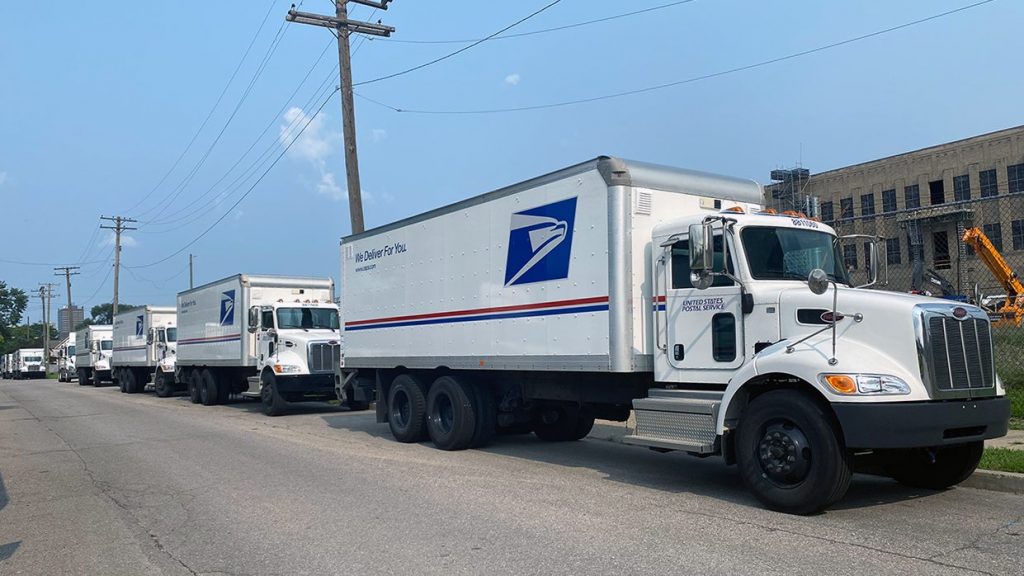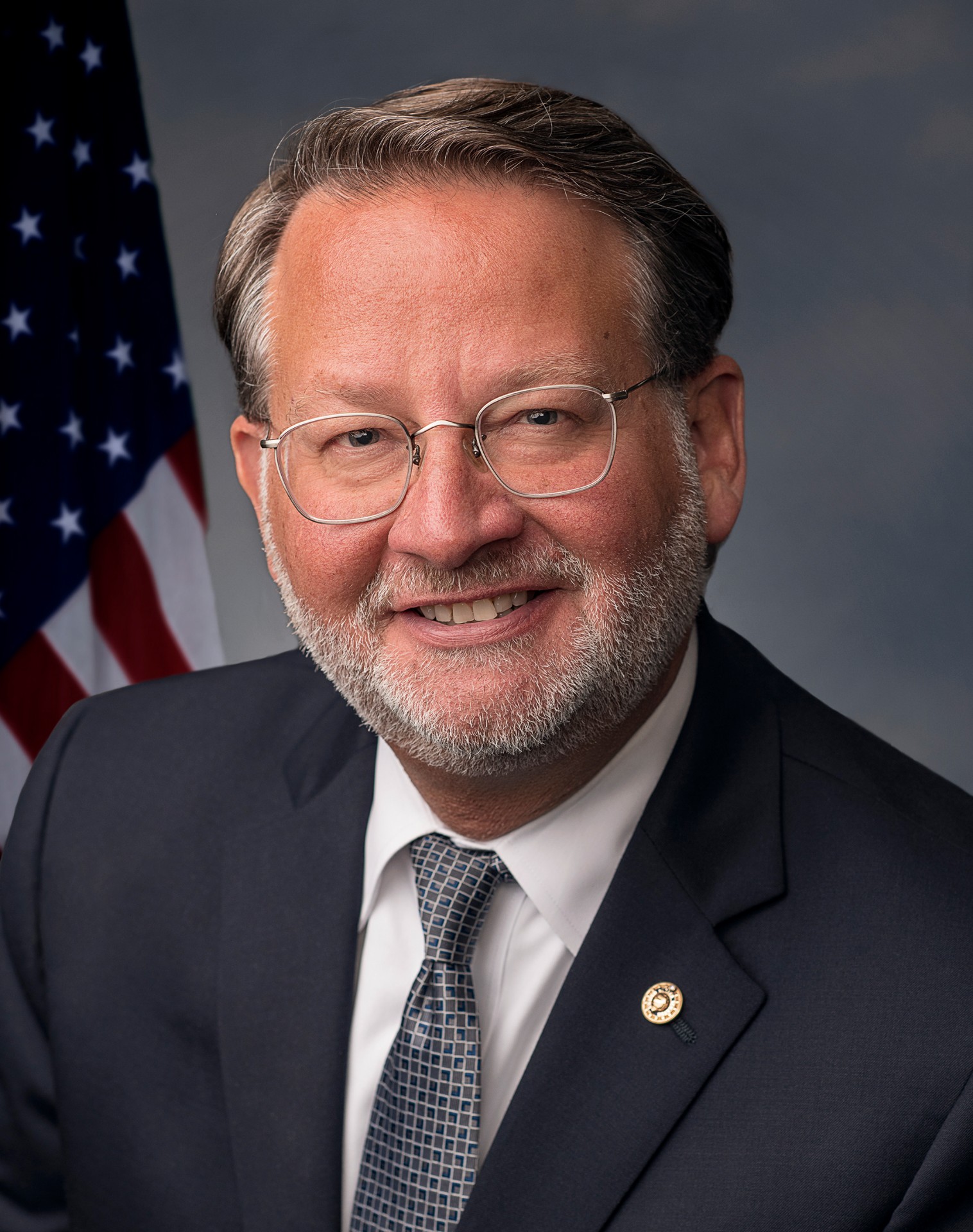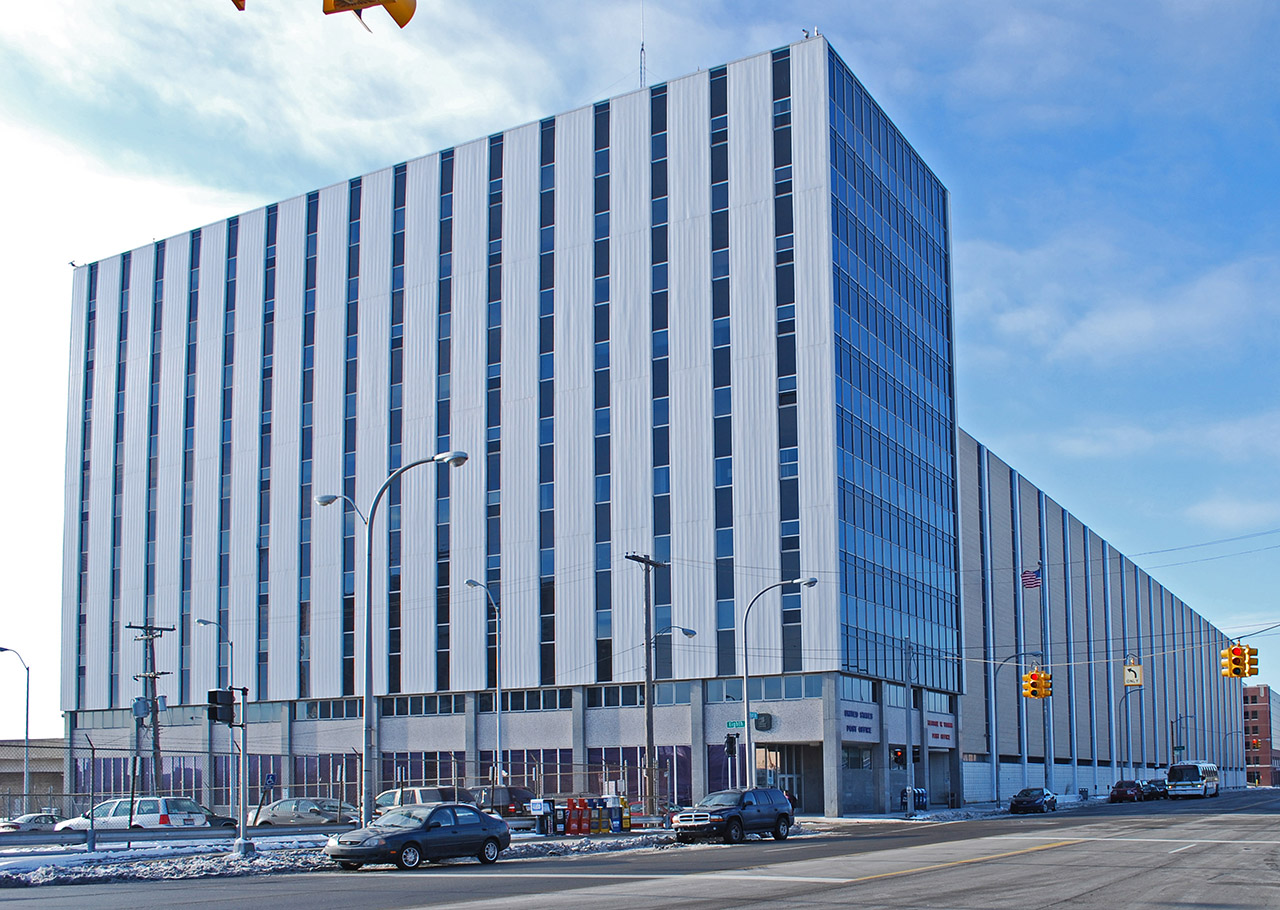What the Constitution Has to Do with Mail Delays in Detroit
The founding fathers considered the post office crucial to the country’s formation, but a shift to running the USPS like a business has affected how it serves citizens.

As part of 101.9 FM WDET’s Book Club, we’re inviting the Detroit region to examine and discuss the text that impacts every resident of the United States: The Constitution. Whether you’re revisiting the documents or reading them for the first time, join us in reading along and engaging in civil conversations with your community.
Get your free pocket Constitution »
Oliver Cole lives in Detroit. So does his cousin. She mailed three letters on June 18: one to Cole in Detroit, his brother in Tennessee and his other brother in Washington.
All were sent from the same address, same post office.
Who got the letter first?
“They got their mail sometime last month. I got mine yesterday, July the 8th,” Cole says.
“The Detroit area does lag slightly behind the national on-time delivery standards for first-class mail.” –U.S. Sen. Gary Peters (D-Michigan)
Cole’s letter only had to go from one Detroit address to another and it took almost three weeks to arrive, compared to the letters delivered out of state.
Cole is not the only person experiencing mail delays in the Detroit area. Residents are reporting lagging arrival times for packages and mail. Some say they’re only getting service 2-3 days a week.
U.S. Sen. Gary Peters (D-Michigan) says while there are issues with mail delivery across the country, delivery is indeed a little slower in Detroit now.
“The Detroit area does lag slightly behind the national on-time delivery standards for first-class mail,” he says.
Crucial to the Country’s Formation
Mail delays are a current issue, but what do they have to do with a document signed on September 17, 1787?
The U.S. Constitution doesn’t say much about the post office. Under Article 1, Section 8 it says that, among other things, Congress shall have the power to “establish Post Offices and post Roads.” While that might not seem like much, the mere mentioning of the post office in the Constitution means it was considered crucial to the formation of the United States.
“Well our founding fathers knew the importance of a postal service, and they knew it was important to really keep the country together,” says Peters, who is the chairman of the Homeland Security and Governmental Affairs Committee, which studies federal agencies and departments including the Postal Service. He says it was important when the country was founded and it’s still relevant.

“It was the one government entity that would make sure that everybody in the country was connected. That continues to be the case today. The Postal Service is the only service that delivers to every single address in America regardless of where that address is,” he says.
Charging an affordable rate to deliver to every address is an expensive task. By 1970, the post office was losing money. In hopes of making it more financially sound, Congress passed the Postal Reorganization Act. The legislation established the United States Postal Service as a government-run corporation that could do things like invest in technological improvements. The thought at the time was that if USPS could run more like a business it would do better financially. But 50 years later, it continues to operate at a loss.
Peters thinks that’s in part because of a unique requirement that the postal service pre-fund retirement for all of its workers, regardless of their age.
“There’s no business in America that does that, no private industry business, the federal government doesn’t do that. And it puts a tremendous obligation on the postal service that no other business in America has to have.”
In May, Peters introduced legislation — the Postal Service Reform Bill — which aims to get rid of the pension requirement. The legislation would also maintain six-day delivery and track performance standards of postal workers.
‘A Service and Not a Business’
Which brings us back to our original question: Why is the mail slow in Detroit right now?

Keith Combs, a mail processor with USPS and President of the American Postal Workers Union in the Detroit District, says the issues stem from a lack of workers.
“We don’t have carriers but at the 75, maybe 60% mark in a lot of stations. Which means a lot of these routes that are supposed to go out daily are not going out,” he says.
Combs says a lot of USPS staff are at home utilizing emergency leave authorized to federal employees as part of the American Rescue Plan. They get up to 600 hours of paid time off for a number of pandemic-related reasons including caring for an older family member or child whose school or day care is closed.
Combs says there are other issues causing delays that go beyond the pandemic. He ties a lot of those issues to actions taken by Postmaster General Louis DeJoy, who began serving in May of 2020.
“His way of doing business is a little bit different from the way the past postmasters general have dealt with the business of the United States Postal Service.”
DeJoy made national headlines last summer when he prohibited late deliveries, limited some overtime and implemented other cost-reduction strategies that further slowed an already struggling USPS. After pressure, DeJoy paused some changes ahead of the election so as not to interrupt absentee voting. But many changes moved forward, including major organizational restructuring. Combs says this has led to confusion and delays.
“I think that we need to have someone at the highest level in Washington, as in the postmaster general, who is driving the business at the post office as a service and not a business.”
The way Combs sees it, finding a way to affordably deliver mail to every address in America doesn’t work when you try to do it as if you’re a for-profit business. But the trouble is that’s what Congress asked USPS to do when it passed the Postal Reorganization Act in 1970. If that approach isn’t working, then Congress can pass new guidelines. After all, it was given the power to do so when our founders wrote the post office into the United States Constitution.
Join WDET in reading the Constitution.
This summer, we invite you to get involved as we explore our nation’s founding document.
Sign up to get your free pocket Constitution
Trusted, accurate, up-to-date.
WDET strives to make our journalism accessible to everyone. As a public media institution, we maintain our journalistic integrity through independent support from readers like you. If you value WDET as your source of news, music and conversation, please make a gift today.
